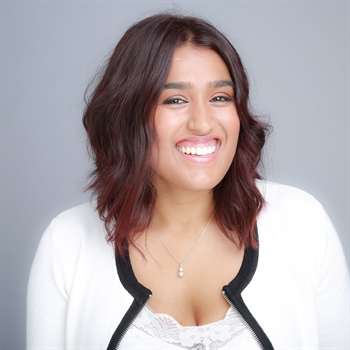 What year did you graduate?
What year did you graduate?
I graduated in 2015.
What is your current role?
I am first year PhD Imaging Science student at Washington University in St Louis.
How did you decide to take your current role?
Following my MRes in Bioimaging Science, I wanted to learn the mathematics and engineering of such systems, to apply to my research interests which encompass developing advanced neuroimaging analysis techniques in the context of mental health conditions, and to help identify unique markers of psychiatric disorders. Given that Washington University in St Louis is a leading in medical research institute, and one of only two PhD programmes offering such a course it seemed like the perfect fit.
Can you describe a typical day?
As a PhD student who has committed to a research laboratory my typical day is split into conducting research during the first half of the day and attending lectures during the latter half. Throughout the week I will meet with the PI to discuss the progress on my research, as well as attend lab meetings, and occasionally conference and retreats both inside and outside the States.
What do you enjoy about your role?
I enjoy conducting research which can have meaningful impact in society, as well as collaborating with other scientists at institutes such as Yale and Oxford.
What do you find challenging in your current role?
Having been part of the British education system, I have found is challenging to adjust to the frequency of testing and assignments here in the US. This is because they the American system uses testing to reinforce learning, and this has required me to adjust my method of studying. However, given the challenges it is a great way to learn such content.
Are there changes occurring in your sector? What are they and how are they impacting you?
In the field of neuroscience, there has been an increase in the use of computational applications, which resulted in my decision to undertake such a PhD. Given my research interest, I am required to learn both the computational and mathematical concepts to develop advanced neuroimaging analysis techniques.
What advice would you give to a current BMS student at St George’s who was keen to get into a similar area of work as you?
Given that a PhD is a big time commitment (3/4 years in the UK/Europe and 5/7 years in America), I would be sure that you are aware of the direction you think your field will take, as well as the topic which you would like to study. Prior to my PhD, I undertook two masters, and research placements in various laboratories with different techniques to ensure I was certain of what research I wanted to conduct.
Which aspects of your degree are relevant for your current role?
My degree at St George’s exposed me to a wide range of medical specialities. This enables me to understand various medical specialities my research can be applicable to and collaborate with individuals in different research groups.
If you could go back to your time at St George’s, what would you do differently?
I would have undertaken an Erasmus placement to understand how research is conducted in a different country.